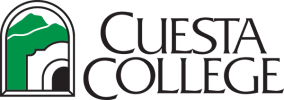
Program Summary
COMPUTER AND NETWORKING TECHNOLOGY - Associate in Science
The Computer and Network Technology program builds a solid foundation in computer and networking theory and applications. The training includes copper, fiber optics and wireless network infrastructure, computer and networking hardware, desktop and server operating systems, computer security, cloud computing, and computer and network diagnostic tools. The goal of the degree is to provide broad training that will prepare a student to install, configure, troubleshoot, and administrate all types of computers and network hardware and associated operating systems. Each course in the program is aligned with industry certification objectives including CompTIA A+, Server+, Security+, Cisco Network Academy, and Cloud Computing.
Career Opportunities
The curriculum is primarily designed for students who are seeking entry-level information and communication technology skills for positions such as network administrator, network engineer, network technician, computer technician, network installer, and help desk technician.
Required Courses (28-31 units)
Units: 28.0-31.0
CNET 240
CLOUD COMPUTING FOR TECHNICIANS
3.0
CNET 221
COMPUTER WORKSTATION ADMINISTRATION
3.0
CNET 235
CYBER SECURITY FUNDAMENTALS
4.0
CNET 253
COMPUTER TECHNICIAN FUNDAMENTALS
3.0
CNET 254
SERVER MAINTENANCE AND ADMINISTRATION
4.0
CNET 260
NETWORKING FUNDAMENTALS
2.5
CNET 261
ROUTER THEORY AND TECHNOLOGY
2.5
CS 201
INTRODUCTION TO COMPUTER SCIENCE
3.0
3.0-6.0
CNET 219
NETWORK INFRASTRUCTURE FUNDAMENTALS
4.0
OR
EET 113
ELECTRONICS FOR COMPUTER TECHNICIANS
3.0
OR
EET 213
ELECTRONICS FUNDAMENTALS
6.0
PDS 171
TEAM BUILDING
0.5
PDS 178
DECISION MAKING & PROBLEM SOLVING
0.5
Total: 28.0-31.0
Program Outcomes
Use knowledge of fundamental principles of logic, reasoning, and theory applied to common computing technologies and products.
1. Student learning outcomes analysis
2. Industry feedback
Develop industry applicable skills including analytical and critical thinking, technical communication and project management that will enable the technician to adapt to many jobs and changing requirements of industry.
1. Student learning outcomes analysis
2. Industry feedback
Apply knowledge and skills to design and assemble platforms, operate and maintain, analyze, troubleshoot and repair relevant computing applications, technologies and systems needed to support local industries.
1. Student learning outcomes analysis
2. Industry feedback
Demonstrate traits of hard work, self-motivation, personal integrity, personal responsibility, teamwork and collaboration that will contribute to their success as well as the success of their employers.
1. Student learning outcomes analysis
2. Industry feedback